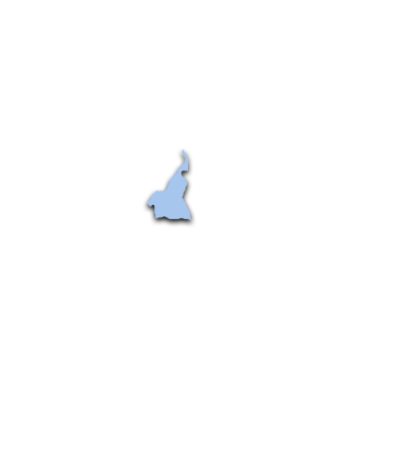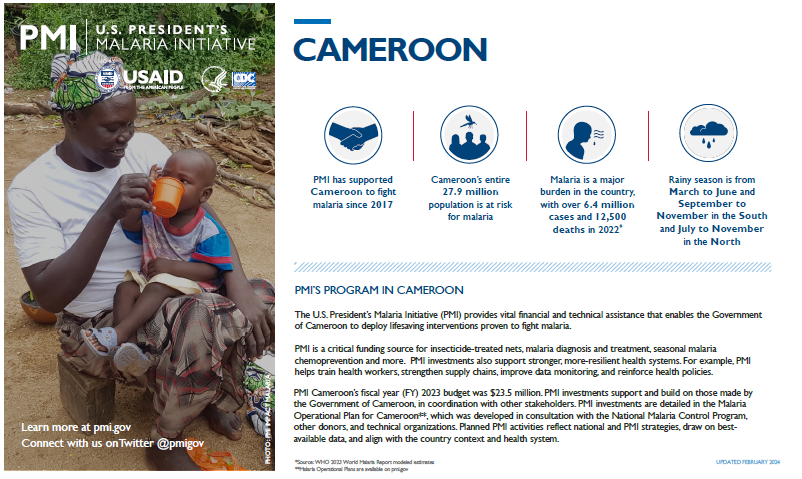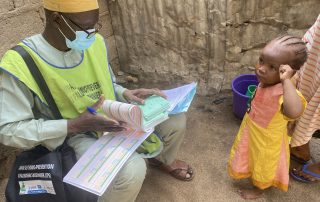CAMEROON

In Cameroon, the entire population of approximately 28 million people are at risk of malaria. Life expectancy, under-five mortality and maternal mortality in Cameroon are worse than the regional average for Central Africa. According to a 2011 household survey, one third of children under five years of age tested positive for malaria parasites. The National Malaria Strategy 2014–2018 creates a vision of a malaria-free Cameroon with an objective to reduce malaria morbidity and mortality by 75 percent from 2000–2018. To achieve this objective, Cameroon will focus on prevention, case management, communication, training and research, monitoring and evaluation, and program management.
Country Fact Sheet
CAMEROON MALARIA OPERATIONAL PLANS (MOPs)
The Malaria Operational Plans below are detailed 1-year implementation plans for PMI partner countries. Each plan reviews the current status of malaria control and prevention policies and interventions, identifies challenges and unmet needs to achieve PMI goals, and provides a description of planned PMI-funded activities. Each Malaria Operational Plan has been endorsed by the U.S. Global Malaria Coordinator and reflects collaborative discussions with the national malaria control programs and partners in country. Changes to these plans are reflected in revised postings.
Page 1 of 1
Page 1 of 1
STORIES
Data Saves Lives: How Cameroon is Using Data to Make Sure Every Community Receives Essential Health Care
Community health workers are essential to increasing health services for hard to reach populations. In Cameroon, these health workers provide a wide variety of services, including diagnosing and treating malaria. PMI collaborated with the Cameroon Ministry of Health and the National Malaria Control Program to develop an interactive tool to guide the expansion of the community health worker program to make sure more families are reached with life-saving services.
The Power of Prevention: Seasonal Campaigns Shield Kids from Malaria
Children under the age of five living in sub-Saharan Africa make up the majority of malaria cases and deaths globally. They are especially at risk during the rainy season when malaria-carrying mosquitoes flourish. Community health workers in countries such as Cameroon, Mali, and Niger work hard to deliver lifesaving preventive medicine to keep children safe.
VIDEO: On-the-job training for high malaria quality care in Cameroon
How the Outreach, Training, and Supportive Supervision (OTSS+) approach to quality assurance helps health workers strengthen their skills



